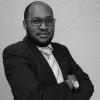
Scanning through most of the international media articles and global analyses, concerning the just ended election on the 4th of August 2017, I realized that Rwanda as a country and her people is still a mystery puzzle that the world can’t seem to easily crack.
Looking at a country like Rwanda one needs to understand the history and the development trajectory that the country has taken, to rise from the abysmal consequences of the brutal genocide against the Tutsis, that 23 years ago left the nation wounded, deeply fractured and divided, tearing the social fabric and destroying the economy.
Today Rwanda is not a shadow of what it was 23 years ago. Government and Rwandans have dedicated themselves to developing the nation. Indicators show that Rwanda has one of the fastest growing economies in Africa. Poverty has been reduced. Rwanda enjoys the highest primary school enrolment in Africa. The country prides itself as having the highest rate in the world of women legislators in parliament at 64 percent. Today Rwandans enjoy peace, security and freedoms which 23 years ago would have become a pipedream. The Rwandans have re-created their destiny and re-written their story. These efforts are buttressed by robust policies and programmes. Embedded in these policies and programs are principles of unity, reconciliation, peace, transparency, accountability, responsiveness, engagement and participation, consultation and most importantly ‘home-grown’ solutions to the Rwandan challenges. Government institutions over the years have become more responsive and accountable to the people. Homegrown solutions have ensured that Rwanda not only defines but also has comes up with solutions rooted in its people’s cultures and values.
People ask, how has Rwanda made it, how come the president enjoys tremendous support in Rwanda and beyond? How come they are defying all odds, how have they reached here? It is the resiliency of the Rwandan people. A people determined to ‘never-again’ return to the past.
Historical perspectives between1959 -1962 saw many Rwandans running to exile. With a legacy of fear that existed in Rwanda’s then social fabric as a result of repeated mass killings, some Rwandans sought refuge in neighboring countries, where they were not only seen as a threat to the national citizens but also a protracted refugee crisesthat was not attended to. As refuges, elders reminded the young ones about their culture and constantly referred to Rwanda as a land of milk and honey, which many held as a linkage to their roots. From there, Rwandans learnt the hard way, to either craft their way and rise above their problems and be counted or lag behind. You know why? Rwanda as a very small land locked country, in central Eastern Africa, without any minerals, and with mostly illiterate people then, who were so poor and ignorant.
As the genocide unfolded the international community stood by silently and watched in horror as Rwanda erupted in grim. And because of this our history has taught us to seek solutions amongst us. As the international community with all the man power, the capable skill mix and the necessary ammunitions decided to abandon us, running from danger, the Rwandan Patriotic Front ran to the danger, its soldiers allowed to sacrifice their lives but redeem the country and start a journey that will be commendable and enjoyed by future generations.
Though the world perceives President Kagame from different lenses, it is wrong to describe him as merely some lanky, soft-spoken, tyrant, with a claim that he had innocuous candidates as opponents. It must be disturbing to some that the president is hugely popular at home and widely praised abroad -“visionary” (former President Bill Clinton) and “among the greatest leaders of our time” (Bill Gates), but if you learnt to stop comparing, then it wouldn’t be hurting that much.
Today the lives of the Rwandans have improved significantly, many have been pulled out of abject poverty, peace and stability is enjoyed, infrastructure development is seen, constructive engagement between CSOs and government is growing, literacy rates are rising, streets are clean and the plastic bags have been banned.
After the elections what can the country focus on to maintain the path to development it has taken? We are encouraged by government and civil society collaboration and believe however that there is need to strengthen collaboration and partnerships between the two. This will not only enhance service delivery but accountability, transparency and responsiveness. Civil society needs to conduct evidence- based research that informs government policies and programs.
It is commendable to see government being responsive to citizen needs and priorities, however citizen engagement, participation and consultation needs to be enhanced to build stronger institutions. Existing institutions can be proactive in ensuring that Rwanda’s legacy is protected. For example the Human Rights Commission could monitor good practices in adherence and implementation of human rights treaties and encourage Rwanda’s to respect the rights of fellow citizen from a Rwandan context.
Government will still focus on poverty reduction, quality education, gender equality, peace, security, infrastructure development and private sector-led growth. Healing will remain continuous in our country but resources need to be dedicated towards the process. Employment creation will ensure that we will build a brighter future for the youth.
Lessons from the international media, especially after these elections, have taught us that as Rwandans we need to write our own narratives. Our journalists, the Rwandan people need to tell and share with the world our story and the path we have traversed. Our academia needs to write the true Rwandan history. We still have a long way to go as a people and country. The international community should join hands with us as we work towards determining our future.
The writer is Executive Director of Never Again Rwanda. You can reach him on joseph@neveragainrwanda.org
- Log in to post comments
